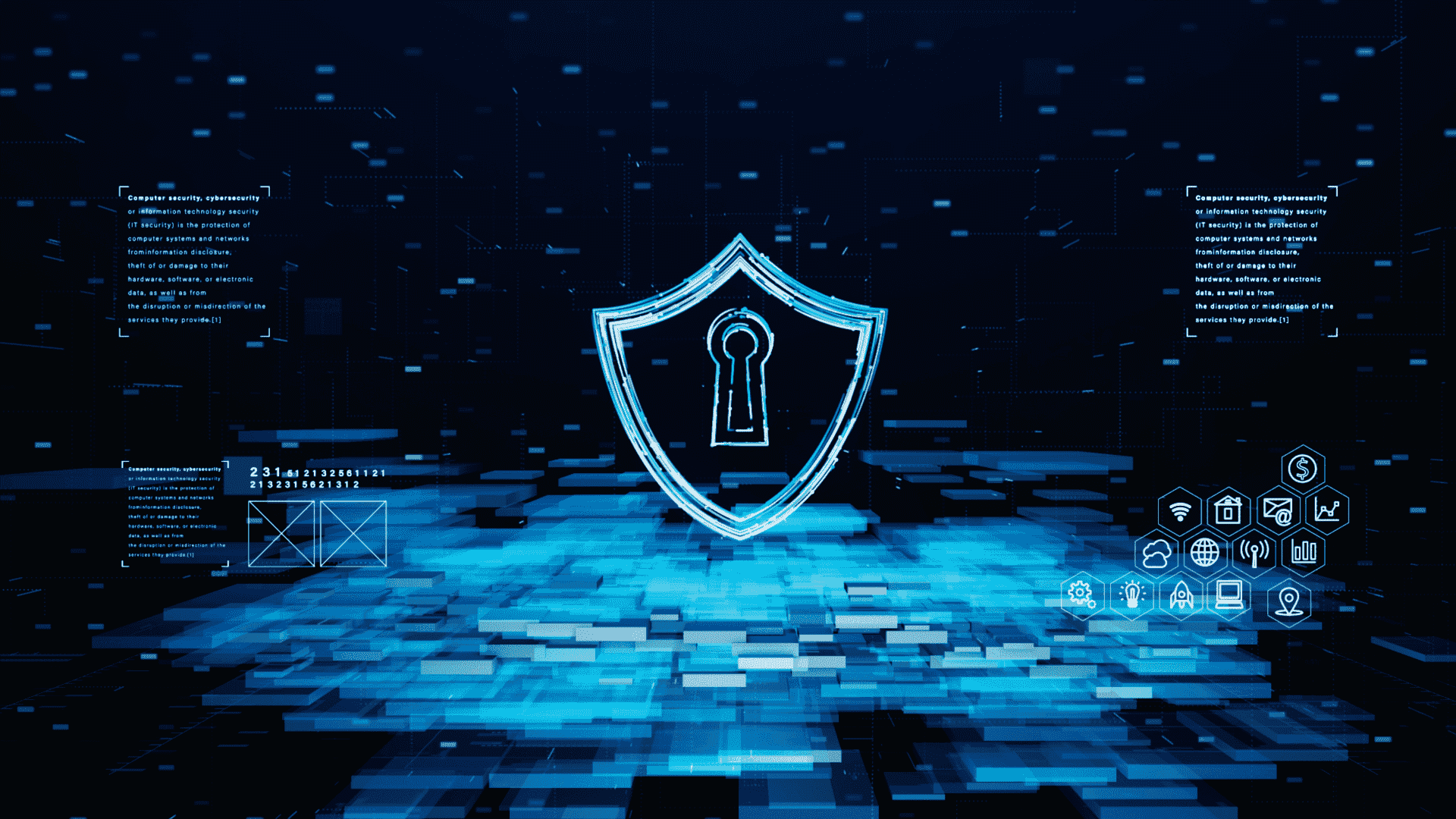Do you ever think about how businesses outsmart cyber bad guys? The internet is always changing, so it’s super important to make sure our online stuff stays safe. With cyber threats evolving at an unprecedented rate today, adopting Artificial Intelligence technology in cybersecurity is no longer regarded as a competitive advantage but rather a necessity. AI is like having a superhero on your side, ready to jump into action whenever there’s trouble. AI is changing the way we stay safe and secure.
Whether you’re a tech whiz or just interested in how things work, I’ve got some cool AI Tools for Cybersecurity for you to check out. Get ready to dive into the world of digital security and see what the future holds!
But before I get our top 10, I think it will be worthwhile getting a little background into what we mean by the very basics of cybersecurity and how importantly AI fits into this area.
What is cybersecurity?
Cybersecurity is identified as safeguarding systems, networks, programs, and data from digital attacks, theft, and also damage. It’s all about keeping the hackers out and protecting your important information. These hackers try to sneak in and mess things up, like stealing your secrets, making you pay money, or stopping you from doing your online stuff.
Security measures are important and necessary both for personal use as well as for business and organizational operations in defense against malware, phishing attacks, data breaches, or any other form of cybercrime.
Cybersecurity is a forward-moving field that attempts to avert oncoming threats and technologies. So do the strategies and trending AI Tools for Cybersecurity used to combat them, making cybersecurity a dynamic and essential field in today’s digital world.
Why are AI-based Cybersecurity Tools Necessary?
AI in cybersecurity has become very essential as:
1. Massive volumes of security data: AI deals with massive volumes of data related to security at very high speeds compared to human analysts. It identifies patterns and anomalies that may indicate a threat.
2. Real-time threat detection: AI-based security tools can monitor networks non-stop and spot threats in real time to provide action.
3. Adaptability to new threats: Machine learning algorithms learn from new attack patterns and adapt defenses correspondingly, so they are always ahead of the changing cyber threat.
4. Reducing false positives: AI excels at clearly indicating genuine threats from false alarms, thereby reducing the workload in security centers, thus letting them narrow down their focus on real problems.
5. Automation of routine tasks: AI can perform regular security procedures on its own, and that lets human resources deal with more challenging and complex issues in security.
6. Predictive analysis: It will point out potential vulnerabilities and future areas for attack in advance so that the organization can strengthen its security posture proactively.
Features of AI Tools for Cybersecurity
In most cases, AI tools have several features that can harden the security posture of an organization:
1. Anomaly detection: AI Tools for Cybersecurity establish a baseline for normal network behavior and point out any deviation from it that could mean a security threat.
2. Threat intelligence: AI Tools for Cybersecurity comb and analyze the threats pooled in from diverse sources and provide updated info on both existing and emerging threats.
3. Automated threat response: Most AI-based cybersecurity tools can automatically trigger predefined response protocols whenever they detect threats, thereby reducing the time needed to respond to a threat.
4. User and Entity Behavior Analytics (UEBA): This is an AI capability in monitoring where anomalies are detected in entity and user behaviors to be able to catch an inside threat or compromised account.
5. Natural Language Processing (NLP): Some AI makes use of natural language processing to analyze a text dataset, such as emails or chat logs, for detecting phishing attempts or social engineering attacks.
6. Malware Detection and Classification: AI can detect and classify new malware through its features, even if it’s a new, unidentified variant of malware.
Top 10 AI Tools for Cybersecurity
1. Darktrace
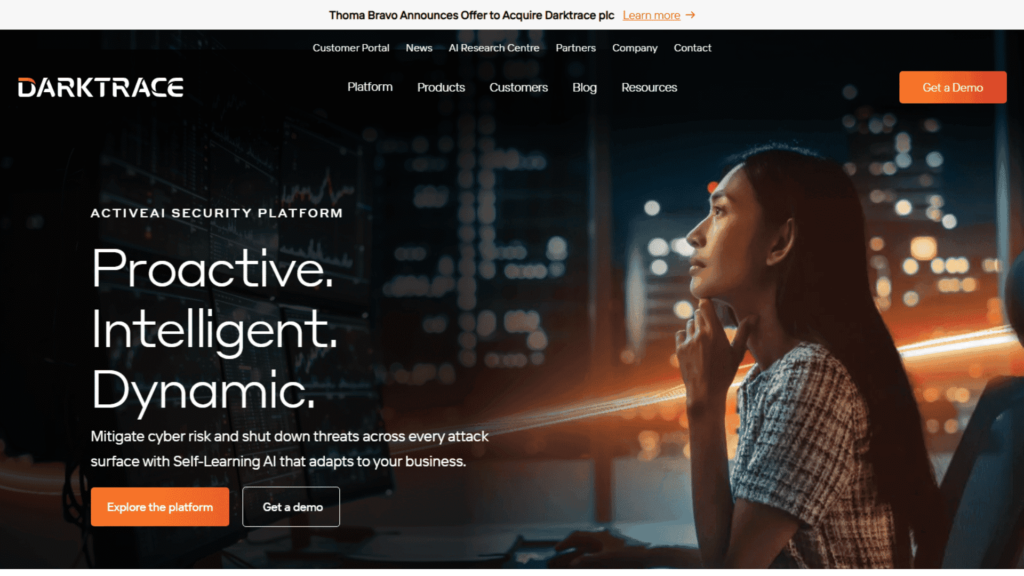
Darktrace, an AI Cybersecurity tool, provides automatic response technology for the detection and response of cyber threats—Founder of Cyber or AT head office. Its Enterprise Immune System works with powerful machine learning and AI algorithms to understand the ‘pattern of life’ for each user and device in the network.
With this capability, Darktrace can establish and destroy new threats, insider sabotage, and stealthy, overarching threats—all those that seem to pass unnoticed by regular, outmoded security software. This technology spans cloud, email, IoT devices, and industrial systems.
Key Features:
- Self-learning AI for threat detection
- Autonomous response capabilities
- Real-time visibility across the digital infrastructure
- Cyber AI Analyst for automated investigations
Pros:
- Identifies novel and insider threats.
- Very low rate of false positives.
- Works in very different environments.
Cons:
- Costly for smaller organizations.
- Requires an initial window to learn.
- Setup and configuration are difficult.
Website: https://www.darktrace.com/
2. CrowdStrike

CrowdStrike is one of the best AI Tools for Cybersecurity uses artificial intelligence and machine learning to provide cloud-native endpoint protection that offers cutting-edge cybersecurity. This is enabled through its platform, Falcon, which provides real-time protection, threat intelligence, and response services.
The AI-enabled, on-the-fly scanning engine in Falcon processes billions of events immediately at runtime to find and block any sophisticated attacks.
CrowdStrike puts a modular approach to configuring a security solution that any organization needs, integrating threat hunting, IT hygiene, and managed services.
Key Features:
- Next-Generation Antivirus and Endpoint Detection and Response (EDR)
- Threat Intelligence Integration
- Managed Threat Hunting
- Cloud-Native Architecture
Pros:
- Lightweight agent with little performance degradation
- Strong threat intelligence
- Easy to deploy and manage
Cons:
- Can be expensive to complete coverage
- Add-ons are required for some advanced features
- The learning curve is a bit high to get full benefit
Website: https://www.crowdstrike.com/en-us/
3. SentinelOne
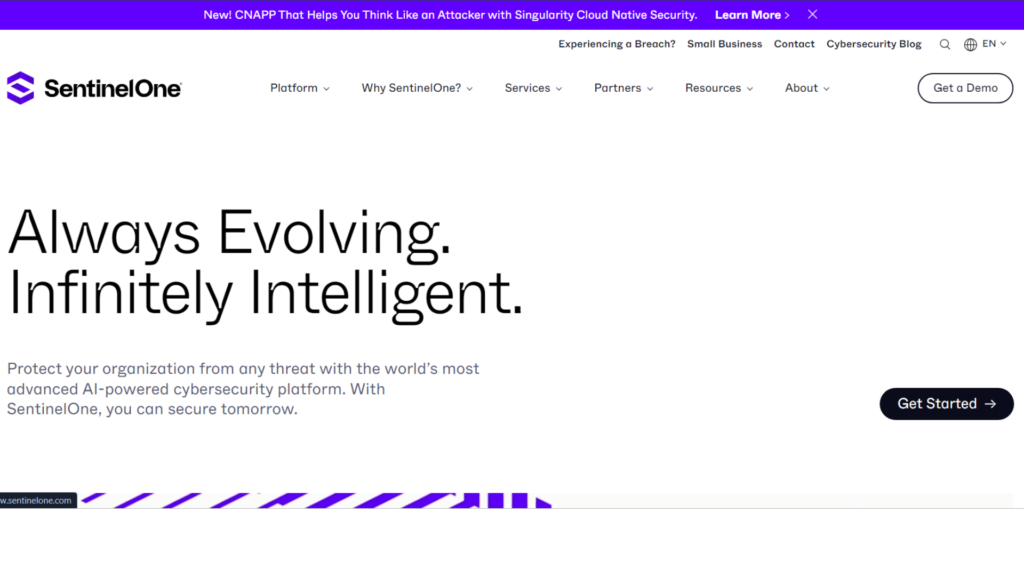
SentinelOne is an AI-based cybersecurity tool, Extended Detection, and Response Platform providing an autonomous cybersecurity solution from endpoints to cloud workloads down to IoT devices.
The SentinelOne Singularity platform uses behavioral AI to detect threats in real-time, including when offline and provides a single platform with all extortions from prevention to modern detection, response, and hunting, all designed in.
The AI models are trained on benign and malicious behaviors, leading to highly accurate threat detection with very low false positives.
Key features:
- AI-powered threat prevention and detection
- Automated response and remediation
- One-click rollback option for endpoints
- Deep visibility and Forensics
Pros:
- Works great with so little human intervention
- Good protection against file-less and zero-day attacks
- Good ability to protect endpoints and respond to outbreaks
Cons:
- Performance fine-tuning might be required.
- Some users occasionally report false positives
- Advanced features are a bit complex to configure
Website: https://www.sentinelone.com/
4. Check Point

Check Point is one of the top AI Tools for Cybersecurity that mimics the utilization of artificial intelligence and machine learning in a holistic way. The ThreatCloud AI is involved in running deep learning analyses on large databases of threat data, hence providing real-time intelligence on threats.
The company’s solutions look after network security, cloud security, endpoint protection, and mobile security. This company provides solutions for artificial intelligence that bring in proactive threat prevention, automated security management, and advanced zero-day protection across all environments.
Key Features:
- AI-driven threat intelligence
- Zero-day protection
- Centralized security management
- Dynamic automation of policies
Pros:
- The best coverage in security
- Excellent in preventing threats
- Scalable from small to big enterprises
Cons:
- Implementation and management may become quite complex
- The price they offer is quite higher compared to its competitors
- When it comes to network traffic, some users
Website: https://www.checkpoint.com/
5. Fortinet
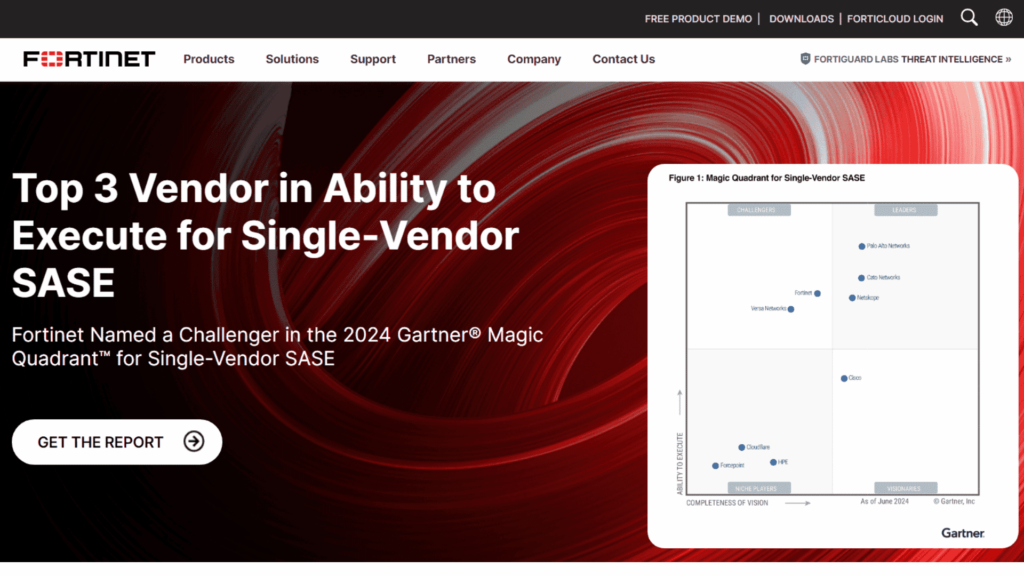
Fortinet Security is a broad, integrated, and automated cybersecurity platform. This AI-based platform protects an entire digital attack surface that includes the network, cloud, endpoints, and IoT devices with equal vigor.
The platform uses advanced machine learning technology through the FortiGuard AI processing of global threat intelligence data in the billions to help it detect and respond to new threats instantly.
These include but are not limited to next-gen firewalls, secure SD-WAN, endpoint security, cloud security, and AI ensuring higher-level security in each of these.
Key Features:
- AI-powered security intelligence
- Built-in security fabric
- Automated response to threats
- Advanced protection against persistent threats
Pros:
- Ecosystem of security solutions
- Best performer in network security
- Real-time threat intelligence
Cons:
- Complex in deployment and optimization
- Requires additional licensing for advanced features
- The steeper learning curve for beginners
Website: https://www.fortinet.com/
6. Zscaler

Zscaler is a cloud-native security platform that harnesses AI and machine learning to enable people, devices, and applications to connect securely. Through its Zero Trust Exchange, it protects connections among users, devices, and apps—regardless of where they sit.
The company’s AI-based engine processes more than 200 billion transactions per day and thereby continually fine-tunes its threat detection capabilities.
It offers functionalities found in a secure web gateway, cloud access security broker, and zero-trust network access but skews them towards always-on AI-driven insights and automation.
Key Features:
- AI-based threat detection and prevention
- Zero Trust architecture
- Cloud-native SASE platform
- Real-time Security Updates And Policy Enforcement
Pros:
- Easy scalability for distributed workforces
- Less latency than old VPNs
- Continuous adaptive risk and trust assessment
Cons:
- Requires some organizations to change their security approach
- Likely will be more costly for small businesses
- Some customers note that performance can be sporadic
Website: https://www.zscaler.com/
7. Trellix

Trellix, formerly known as McAfee Enterprise and FireEye, offers an AI-powered, automation-supported XDR platform in its adaptive threat protection feature.
The Trellix XDR platform integrates security technologies from endpoints, networks, and the cloud environment to provide an organization with one view regarding its security state.
This allows for proactive threat hunting, automated investigations, and response to even complex threats in real-time, making it truly a living security system able to learn and adapt to new threats continually.
Key Features:
- AI-driven threat detection and response
- XDR integrated capabilities
- Automatic investigations and playbooks
- Threat intelligence enhanced
Pros:
- Full visibility across diverse environments.
- Integration of previously standalone technologies.
- Continually learn and adapt to new threats.
Cons:
- Recent rebranding may lead to some confusion
- The integration is still going with other product lines
- Implementation and optimization can be very complex
Website: https://www.trellix.com/
8. Vectra AI

It is another one of the best AI Tools for Cybersecurity. It is an AI-based network detection and response organization. Their core product, the Cognito platform, uses AI and machine learning to analyze network metadata to detect cyber-attacks in real time.
Vectra AI is unique in its approach to handling known attacker behaviors rather than relying solely on signatures or indicators of compromise. With it, we can trace and hunt both known and unknown threats besides identifying insider attacks and silent, long-term campaigns.
Vectra AI enables automated threat hunting and incident response to take a considerable workload off the security team.
Key features:
- AI-driven network traffic analysis
- Real-time detection of attacker behaviors
- Automated threat hunting
- It can be integrated with available security technology.
Pros:
- Effective in detecting advanced threats
- Prioritized high detections
- Effective in a hybrid and cloud environment
Cons:
- Network-focused
- Sometimes needs to be tuned for performance
- Could be complex for smaller organizations
Website: https://www.vectra.ai/
9. Cybereason
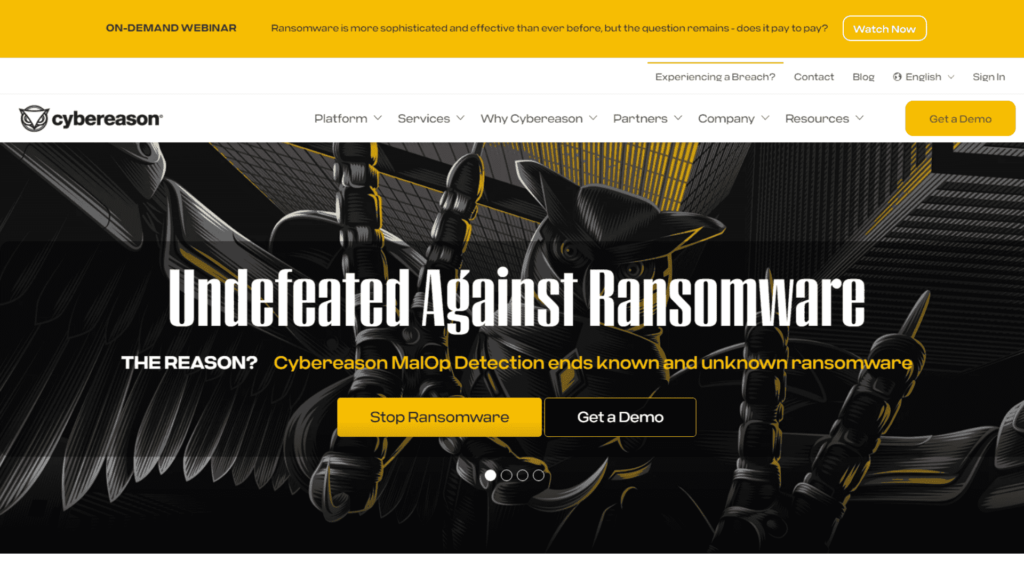
Cybereason delivers an AI-driven XDR extended detection and response platform with endpoint protection, detection, and response capabilities. The Cybereason Defense Platform delivers full-fidelity detection and alerting of complex cyber attacks in real-time, leveraging behavioral analysis and machine learning.
Cybereason homes in on Malops, or malicious operations, not just single alerts, to deliver greater context around threats. There is an automated investigation and response process that ensures minimized response time.
Key Features:
- AI-driven endpoint detection and response
- Track Malops (malicious operations)
- Automated investigation and recover
- Cross-machine correlation
Pros:
- High efficacy in discovering complex, multi-staged attacks
- High user experience scores for ease of use and visualizations
- Mean time to detect and respond is supported with an excellent focus
Cons:
- More costly than some competitors
- Some more advanced features require additional licensing
- Fine-tuning might be needed
Website: https://www.cybereason.com/
10. Tessian

Tessian secures an organization’s human layer with the help of machine learning within the cybersecurity space, especially in email and data loss prevention.
AI-powered, the Tessian platform uses historical email data to understand normal communication patterns and then catch threats like spear-phishing, accidental data loss, and data exfiltration.
It particularly effectively catches advanced social engineering attacks that typically bypass traditional email security measures. The platform notifies end-users in real-time and exposes them to a potential threat, allowing them to prevent it.
Key features:
- AI-based email security
- Automated detection of phishing and social engineering attacks
- Data loss prevention
- User analytics and education against behavioral threats
Pros:
- Amazing tool for preventing human error-based incidents
- Practically no disturbance to user workflows
- Continuously learning and evolving with threats
Cons:
- Views are more around email and data loss prevention.
- Might take a learning curve and some time to be effective
- Might cost more for bigger companies
Website: https://www.tessian.com
Conclusion
Some of the most innovative and effective top 10 AI tools for cybersecurity available in 2024. Different in the strengths and capabilities they exhibit, they all make use of the power of artificial intelligence to protect against all the different types of threats coming from the ever-changing internet landscapes.
Here are ten of the best AI security tools, and an organization provides its specific needs and infrastructure to identify which combination is ideal for them.
You can connect with Top cyber security companies in India for your security concerns.
FAQs
What is the key benefit of utilizing artificial intelligence-powered cybersecurity tools?
These can efficiently detect and act on threats as they unfold, often pinpointing complex or novel attacks that would escape traditional systems.
What is the AI cybersecurity product I should prefer for the protection of my endpoints?
The most reputed in the industry for endpoint protection features are CrowdStrike and SentinelOne.
Will these AI cybersecurity tools be appropriate for small businesses?
The capability and some expensive tools like Darktrace exclude them. Others, like Fortinet, offer solutions that are scalable to smaller organizations.
Would you consider AI cybersecurity tools as a substitute for human security teams?
No. AI tools should complement human capabilities and, for the utmost protection, be managed and overseen by a security engineer with experience.
